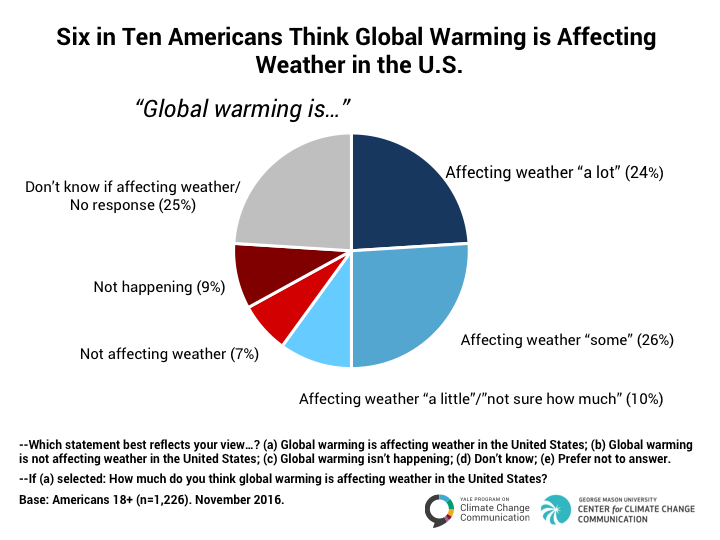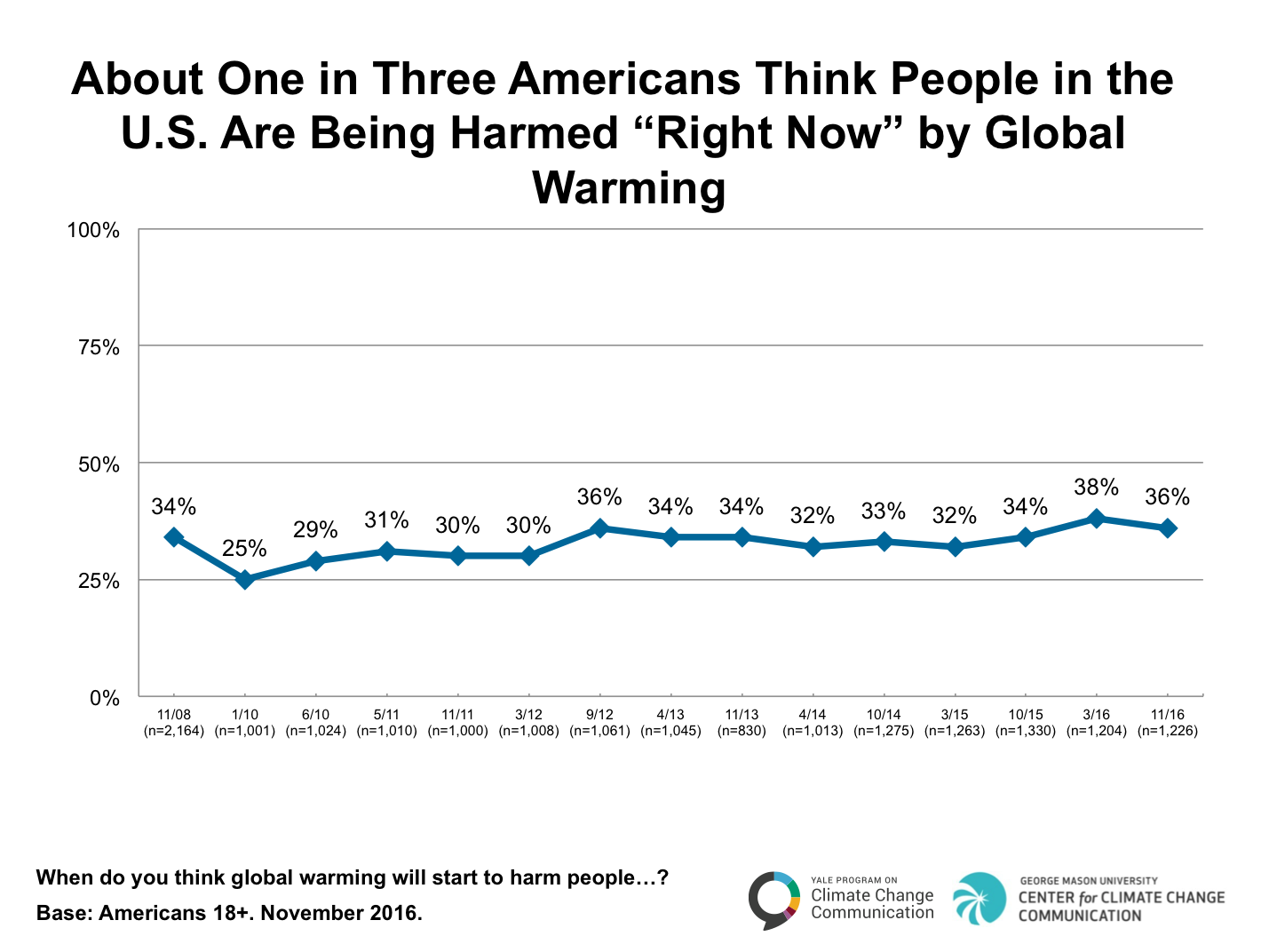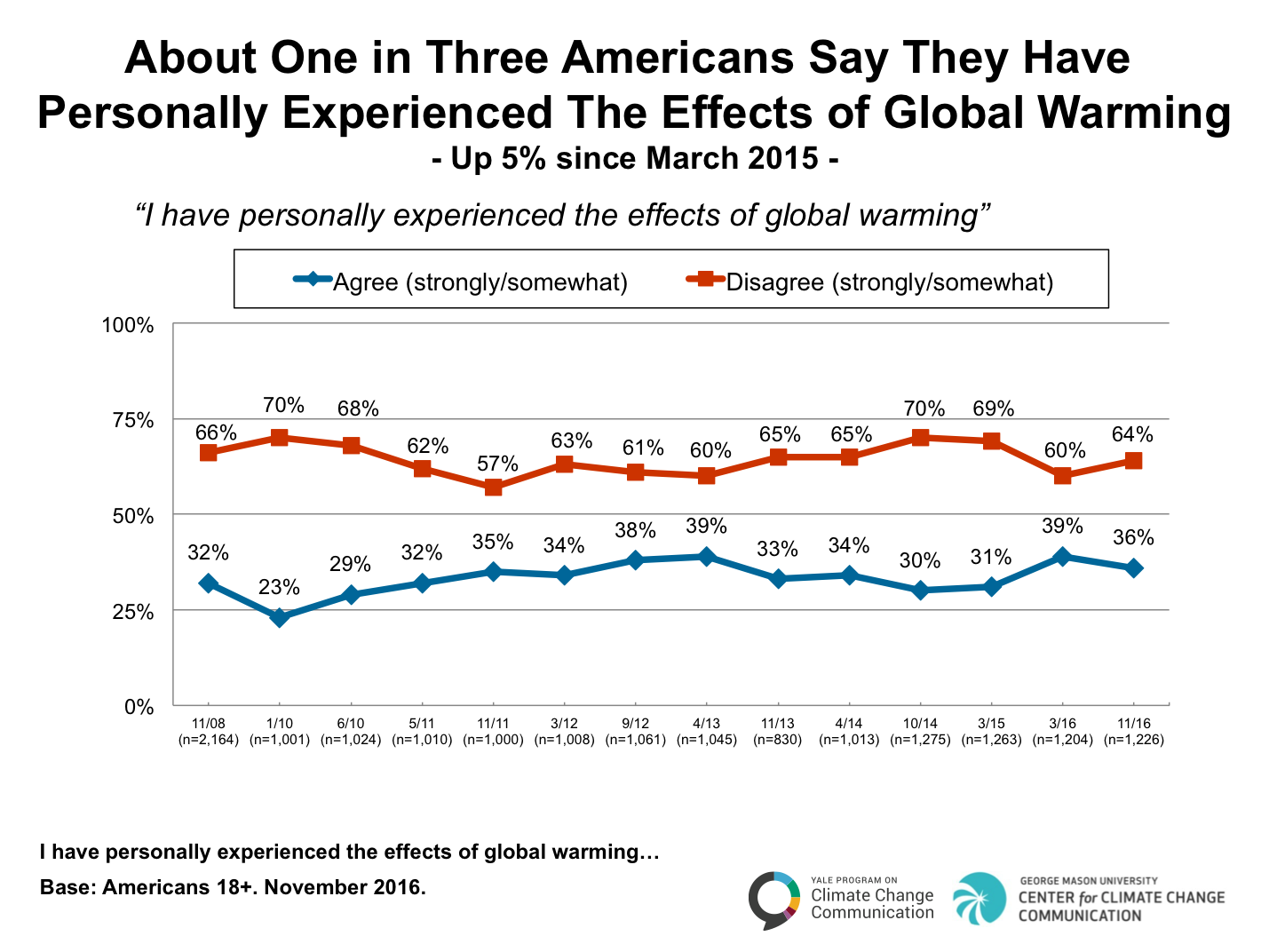Report · Jan 18, 2017
Climate Change in the American Mind: November 2016
By Anthony Leiserowitz, Edward Maibach, Connie Roser-Renouf, Seth Rosenthal and Matthew Cutler
Filed under: Beliefs & Attitudes
3. Perceived Risks of Global Warming
3.1. Six in ten Americans think global warming is affecting weather in the United States.
The impacts of global warming are starting to be felt in the United States. According to the 2014 U.S. National Climate Assessment:
“Residents of some coastal cities see their streets flood more regularly during storms and high tides. Inland cities near large rivers also experience more flooding, especially in the Midwest and Northeast. Insurance rates are rising in some vulnerable locations, and insurance is no longer available in others. Hotter and drier weather and earlier snow melt mean that wildfires in the West start earlier in the spring, last later into the fall, and burn more acreage. In Arctic Alaska, the summer sea ice that once protected the coasts has receded, and autumn storms now cause more erosion, threatening many communities with relocation.”http://nca2014.globalchange.gov/highlights/overview/overview
In line with this assessment, six in ten Americans (60%) think global warming is affecting weather in the United States, and half think weather is either being affected “a lot” (24%) or “some” (26%). Only 7% think global warming is not affecting weather in the U.S., along with 9% who responded that global warming is not happening. One in four (25%) said they did not know or did not provide a response.
3.2. About one in three Americans think people in the U.S. are being harmed “right now” by global warming.
Even though the majority of Americans think global warming is affecting weather in the United States,, only about one in three Americans (36%) think people in the U.S. are being harmed by it “right now.”
3.3. Most Americans think global warming is a relatively distant threat, although a growing percentage are coming to understand it harms people.
Americans are most likely to think that future generations of people (71%) and plant and animal species (70%) will be harmed a “great deal” or a “moderate amount” by global warming. A majority also think people living in developing countries (65%), the world’s poor (65%), and people in the U.S. (59%) will face such harm.=
They are less likely to think that those closest to them – people in their community (49%), their family (46%), and they themselves (41%) will be harmed.
Although Americans perceive global warming as a relatively distant threat, over the past two years (since our March 2015 survey), the number of Americans who think climate change will cause harm to humans has increased substantially. More Americans now think global warming will harm:
- People in developing countries (+12 percentage points since March 2015; see Tables, pp. 33-36)
- People in the U.S. (+10 points)
- Future generations (+8 points)
- Their family (+5 points)
- Them personally (+5 points)
3.4. About one in three Americans say they have personally experienced the effects of global warming, two in three say they have not.
About one in three Americans (36%) say they have personally experienced the effects of global warming. About two in three (64%) say they have not.
The number of Americans who say they have personally experienced the effects of global warming is higher than it was in March 2015 by five percentage points.



